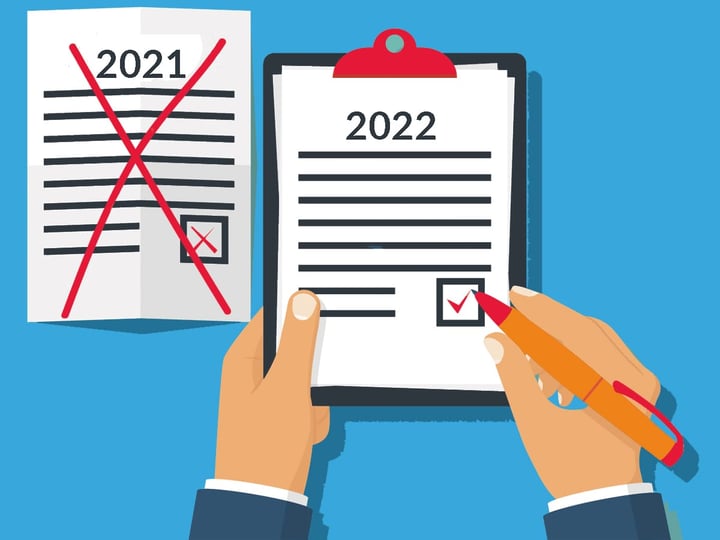This year, there will be some notable changes happening under GDPR that recruitment marketers need to be aware of – and even begin taking steps to adhere to – now.
As always, the first crucial step towards compliance is to actually understand the changes (or at this stage, at least try to!).
 As a recruitment marketer, it’s your job to attract and build a loyal audience for your company, and this involves collecting, storing and using personal data. Therefore, it should come as no surprise that GDPR will have a substantial effect on how you do your job.
As a recruitment marketer, it’s your job to attract and build a loyal audience for your company, and this involves collecting, storing and using personal data. Therefore, it should come as no surprise that GDPR will have a substantial effect on how you do your job.
The changes will impact how recruitment marketers (or any marketers for that matter) approach their daily tasks – it’s not something to fob off as someone else’s problem to be tackled another day. Under GDPR, every recruitment team member is accountable for how they collect, process and retain data, and this includes marketing too.
To give you a head start, here’s a rundown of some of the ways that GDPR will affect recruitment marketing.
ePrivacy Regulations and GDPR
Before moving on, it’s worth clarifying that recruitment marketers will also have the new ePrivacy Regulations to grapple with alongside GDPR. What we know currently as the ‘ePrivacy Directive’ (or PECR) will be updated to the ePrivacy Regulations come May 2018 in the hope of bringing the PECR up to date with modern technology and aligning it with GDPR.
As ideally you’ll be working from one centralised database but with two distinct segments (your candidates and clients), both sets of regulations will be relevant to you. This is because whilst GDPR focusses on improving personal data protection for individuals (aka your candidate database), the new ePrivacy Regulations will cover business-to-business data sharing (aka your client database).
The end of dirty data
Cleaning up your marketing data and ensuring you remove clients and candidates who aren’t engaging with your brand will be a priority where GDPR and recruitment marketing is concerned. To approach this task for your client database and ensure it’s in line with the new ePrivacy Regulations, you need to consider your process of how you collected your contacts in the first place.
If your client contact details were collected “within the context of an existing customer relationship for the offering of similar products or services” (Article 16) and you have given that client the option to unsubscribe each time you’ve contacted them since, then no action will be required (as this is known as a ‘soft opt-in’ and is likely to still be acceptable under the new regulations).
 However, if you have prospects on your database who you’ve been contacting in the context of “negotiating a sale” – or in other words, you’ve never explicitly worked with them before – it’s likely you’ll need to ask them to re-consent to being on your mailing list. This is because the context of “negotiating a sale” has been removed in the transition from the PECR to ePrivacy Regulations and can no longer be considered a valid reason to send marketing.
However, if you have prospects on your database who you’ve been contacting in the context of “negotiating a sale” – or in other words, you’ve never explicitly worked with them before – it’s likely you’ll need to ask them to re-consent to being on your mailing list. This is because the context of “negotiating a sale” has been removed in the transition from the PECR to ePrivacy Regulations and can no longer be considered a valid reason to send marketing.
Where cleaning up your existing candidate database is concerned, it’s likely this will be in the process of being handled by your recruiters (or at least, it should be!). However, to get a feel for how they’ll go about it, have a look at our guide to calculating your candidate database engagement – and even share it with your team for additional brownie points!
Whilst data cleansing will inevitably result in a shrinking marketing database, it will also mean that everyone is working on a more active (and therefore more valuable) resource. With a clean database, your messages will be reaching those who actually want to hear from you, and this is what really matters – remember your ultimate goal is to help your recruiters make more placements!
Watching your database shrink is never going to be easy, but remember that holding on to unengaged, dead data results in lower open rates and click-throughs, which only reflects badly on you. In fact, as much as 51% of email marketers say a lack of quality contact data is their biggest barrier when it comes to lead generation, so just think about how positive your stats will be once your database is cleaned up!
A shift from ‘collect more data’ to ‘collect the right data’
Similarly, collecting data indiscriminately in order to grow your database doesn’t make your life better as a marketer, it makes it worse – and much harder to get good results. GDPR and the ePrivacy Regulations combined will encourage marketers to focus on quality over quantity, and this can only mean positive progress.
Moving forward, you’ll need to work with a strict ‘data minimisation’ strategy when collecting data from clients and contacts. Under GDPR, it’ll be a legal requirement that you only collect and store information that a client or candidate is explicitly giving you, and that’s “adequate, relevant and limited to what is necessary” for the purpose it was collected (Article 25). In order to demonstrate an intention to comply, you’ll need to ensure that your forms’ subscription fields reflect this. So don’t ask any prying questions, and don’t store any information that, if asked, you couldn’t justify needing to know in order to do your job.
It’s all about clarity, choice and control
Logistically, the main challenge you’ll need to start thinking about making to your marketing sooner rather than later is how to update your marketing opt-in and opt-outs. When GDPR comes into effect, you’ll need to give contacts the power to manually opt in to different forms of de-bundled marketing rather than just one simplified ‘join our mailing list!’ option if you are intending to engage with them using these different marketing mediums (e.g. email, job alerts, sms, calls etc.).
You’ll also need to ensure you ditch any pre-ticked marketing subscription boxes when collecting new data. Whilst this method was acceptable (but not really best practice, if we’re being honest) under the Data Protection Act (DPA), this will no longer be acceptable under GDPR. Contacts need to explicitly opt in to be signed up for any marketing, and they need to know exactly what they’re signing up to.
In addition to creating clear and de-bundled opt-ins, you’ll also have to give both candidates and clients an easy way out if they change their mind about being on your marketing list. In order to comply with both GDPR and the ePrivacy Regulations, a clear one-click unsubscribe option should be present in every single email you send.
Working harder, but for more reward
Data retention aside, your job as recruitment marketer is to ensure you’re producing enough valuable content to keep candidates and clients engaged and loyal to the brand. And it’s fair to say that under GDPR, the game will be upped substantially across the board: In a nutshell, you’ll need to be more creative, original, innovative and valuable in order attract and keep your candidates engaged … no pressure!
This will of course involve hard graft, but think of it as working harder to earn the right to hold your data – and in return, you’ll value the data you hold even more. A by-product of upping your game for the new regulations is that it will improve the performance of any marketing campaign you run. And for this reason, you might even see the new regulations as an opportunity to become a better marketer rather than just an annoying obstacle to overcome.
 Disclaimer: The content of this blog should not be taken as legal advice and does not offer full comprehensive guidance for GDPR.
Disclaimer: The content of this blog should not be taken as legal advice and does not offer full comprehensive guidance for GDPR.
Katie Paterson
Katie once headed up the Firefish blog and marketing team. She now works as a freelance copywriter and continues to contribute to our award-winning blog.



